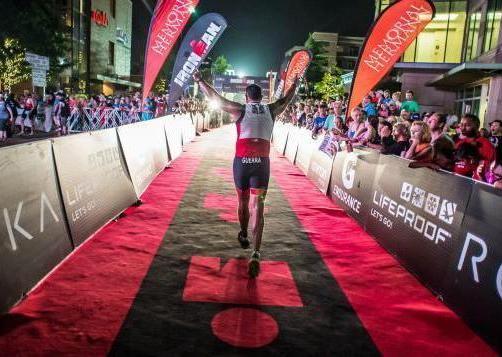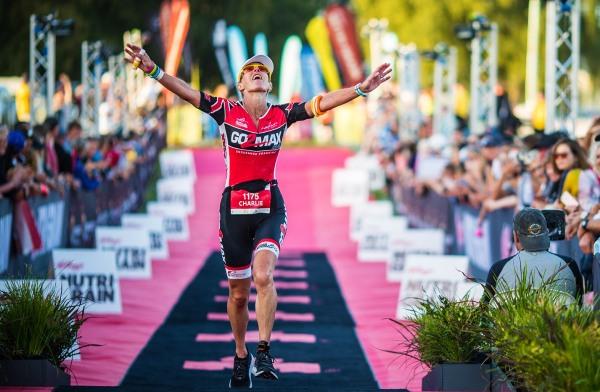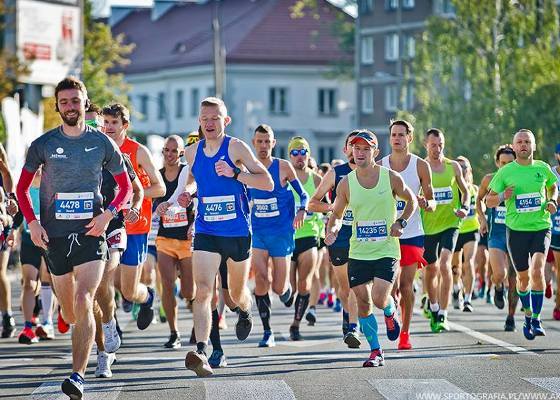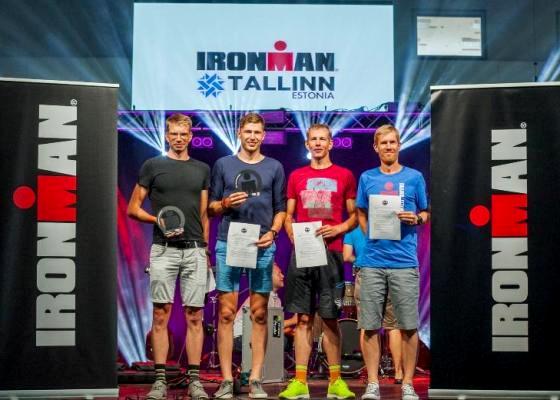
Every October, the top triathletes from across the world gather to compete at the crown jewel of the sport in Kona, Hawaii. The television broadcast of the event has inspired thousands of people watching on couches to dramatically change their lives. They have dusted off the swim goggles, bikes and running shoes and crossed finish lines they once thought impossible.
For many though, the words, “You are an IRONMAN,” remains an elusive dream. At what point should you turn that dream into reality and target finishing a full triathlon? We turned to top coaches as well as top Iron-distance triathletes to find the best advice they could offer.

Photo: © Andrzej Waszkewicz / EMG
As you might expect, the answer to that question is intensely personal. Yes, physical conditioning plays an enormous role in evaluating whether now it the time to finally go for it. However, both the emotional and financial requirements should be considered as well. Here’s our list of the top 10 questions to answer before waiting in a line at the race site or hitting the button on your computer to register in the IRONMAN Triathlon Race.

Photo: © IRONMAN Triathlon
1) Have I competed in enough IRONMAN 70.3 races to truly understand what’s ahead?
Preparing for an IRONMAN 70.3 easily requires 8 to 10 hours per week of training for 18 to 22 weeks – a period similar to training for a marathon. The race itself is long enough to test your ability to pace yourself, manage your nutrition, and find out if you enjoy competing at this level.
2) Do I have an appropriate level of base fitness to train at a high volume?
We all know people or stories of people who signed up for an IRONMAN as their first triathlon. They then spent the next year building to the event through shorter courses and conscientious training. This is possible, but is also the exception. Do you feel you have the strength to complete high volumes of training, recover quickly, and avoid injury over a six-month period?
3) Do I have the right coaching support to train in a structured manner for the event?
Unlike the annual town sprint triathlon, you can’t “wing” training for a race of this level. Have you found the right book for self-coaching, the right triathlon club with a program, or the right coach for individualized training that will get you safely to your goal?

Photo: © IRONMAN Triathlon
4) Do I understand my nutritional needs for an endurance event of this length?
Nutrition truly is the fourth leg of the race. You will need to learn to eat to train, not train to eat over the next six months. Do you have a good sense of your relative sweat rate and your own metabolism? Do you have someone you trust who can help you prepare a proper nutrition plan?
5) Am I prepared to commit to train for 15 to 25 hours per week for six months?
Adequately training for the race can feel like a part-time job. Some competitors will easily devote 30-plus hours in the peak weeks. Are you willing to dedicate this much time and still maintain the passion that attracted you to the sport?
6) Do I have a “crew” with whom I can train during the year?
If anecdotal evidence isn’t enough, a number of scientific studies have shown that it’s easier to stick to a schedule if you train with others. Will friends of yours be training for the same event and can you time your long bike rides or runs so that you have company?

Photo: © Andrzej Waszkewicz / EMG
7) Can I afford all costs associated with the event?
The hefty entry fees for IRONMAN Triathlon races seem daunting for many. Keep in mind, though, that this is only a down payment to claim eventual bragging rights. You will likely need new equipment along the way. Depending on which race you select, you may also need to book several days at a hotel, not just one room the night of the event.
8 ) Will my family support the effort?
Given the time you will spend on the road and in the pool, not in the living room or backyard, you need to have your family on-board for the entire adventure.
9) Can I maintain my job or career obligations throughout the period?
Simply put, don’t forget the day job. Even if there were major companies who sponsored top age-grouper triathletes, a lifetime supply of energy bars won’t pay the rent. Make sure that you maintain the appropriate work-life balance.
10) Am I willing to accept that the goal for 95 percent of first timers is simply to finish?
Given the amount of time the endeavor will consume, will you be happy just to say you crossed the finish line? Yes, it would be terrific to qualify for Kona the first time out. However, even age-group slots are getting more competitive each year.

Photo: © IRONMAN Triathlon
© Paul Tyler

Sports Reviews:
6 reasons to race in IRONMAN 70.3 Gdynia

The Benefits of Swimming

Gran Fondo Gdynia 2019

Enea IRONMAN 5150 Warsaw Triathlon 2018

Bike race in Triathlon VOLATMAN 2018

5 good exercises to strengthen your swimming

PZU Maraton Warszawski 2018

IRONSTAR Olympic & 226 Sochi 2018

Triathlon IRONMAN Tallinn 2018

Susz Triathlon 1/2 Ironman 2018

Sprint Triathlon Gdynia 2018

PKO Białystok Half Marathon 2018

5150 Warsaw Triathlon in Poland
